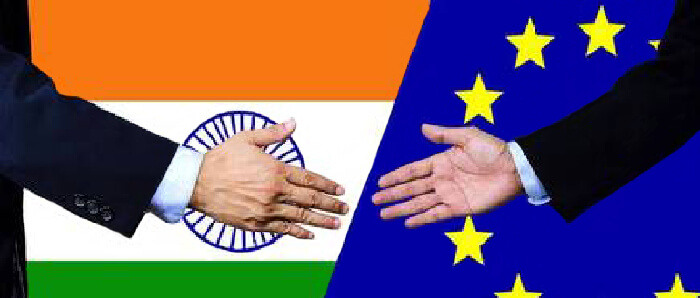Investment facilitation, regulatory cooperation, trade barriers and IPR may
India and the EU will take forward discussions on the launch of an investment facilitation mechanism, initiation of regulatory cooperation and removal of identified trade barriers for their possible inclusion in the list of deliverables at the Leaders’ Summit scheduled in May 2021 in Portugal, a government official has said.
At the recent India-EU high level trade group meeting led by commerce & Industry Minister Piyush Goyal and his counterpart from the European Commission Valdis Dombrovskis, the two decided to meet within the next three months to give a final push to quick deliverables before the Summit.
India, EU discuss re-initiating talks on bilateral free trade pact starting with interim agreement
Other issues that Prime Minister Narendra Modi and leaders from the European Union and European Commission are likely to discuss at the India-EU Summit include continuation of the Intellectual Property Rights (IPR) dialogue, collaborating in research and innovation, promoting clean economy, addressing multilateral issues of mutual interest and building resilient value chains, the official tracking the matter told BusinessLine.
More ambitious agenda
The EU is the second largest export destination for India, after the US, with exports in April-March 2019-20 at $45 billion accounting for 14.36 per cent of the country’s total exports. Imports from the bloc into India were at par with exports at $45 billion during the fiscal, accounting for 9.5 per cent of India’s total imports.
“Despite Covid-19, the decisions taken at the last India-EU Summit in July 2020 have been taken forward by the two sides in great earnestness. The two sides are of the view that it is the right time to draw a more ambitious agenda for mutual cooperation,” the official said.
It was at the July Summit that a decision was taken to form an India-EU high level trade group to discuss and take forward at the Ministers’ level, all pending trade related matters and also address new ones.
At the first meeting of the high level trade group last week, Dombrovskis informed that Portugal had assumed the rotating presidency of the Council of the EU from January 1, 2021, and it had made EU-India relations a top priority, the official added.
Early Harvest Programme
Although a decision is yet to be taken on when the talks on an India-EU free trade agreement (Broad-based Trade & Investment Agreement) will be re-launched, India has expressed its keenness to start with an Early Harvest Programme at the earliest and then move on to a full-fledged pact.
“Both sides agreed on monthly progress review of discussions by senior officials and quarterly review by the Ministers for providing guidance,” the official said.
It would take concerted efforts to re-start the talks that were suspended in 2014 over serious differences on issues such as market access for wines & spirits, automobile and financial institutions as well as EU’s insistence on inclusion of non-trade issues such as labour and environment.
Putting in place better investment facilitation measures and greater regulatory cooperation are issues that both sides have been pushing for as it could greatly facilitate business between the two sides. Lack of understanding of regulatory procedures has resulted at times in rejection of Indian exports in EU countries while investors from EU have been seeking simpler investment procedures in India.









